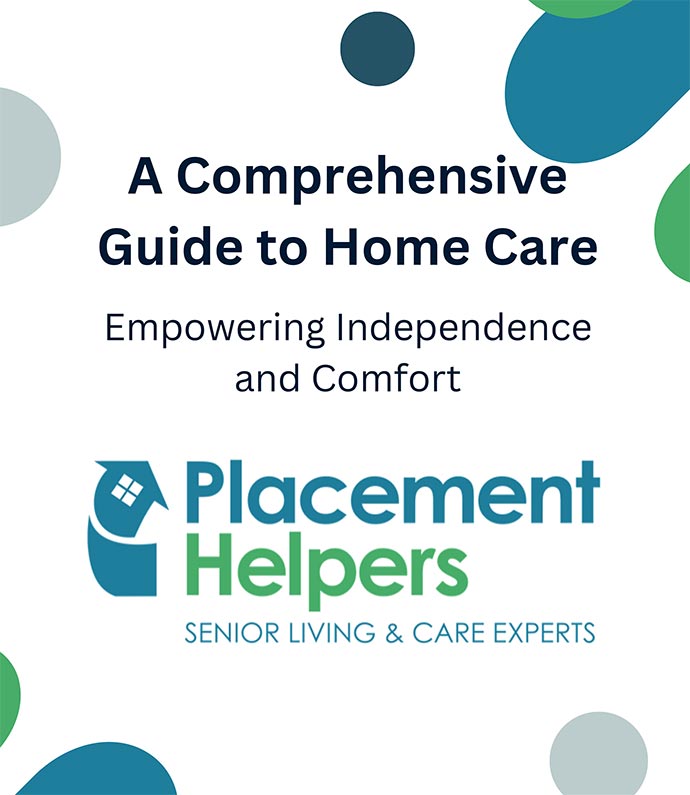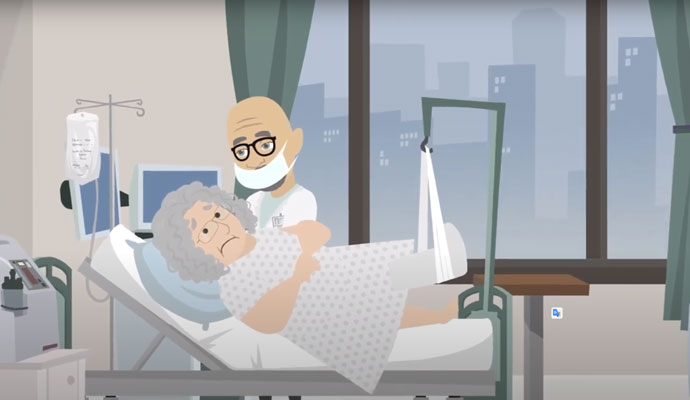A Comprehensive Guide to Home Care
Empowering Independence and Comfort
What Is Home Care & What Services Are Offered?
In-home care, also known as home care or domiciliary care, is a type of care service that is provided in the comfort of an individual's own home. It is designed to assist individuals with various aspects of daily living and provide support for those who may require assistance due to aging, illness, disability, or recovery from medical procedures. In-home care services can be tailored to meet the specific needs of each individual and can range from minimal assistance to more comprehensive care. These In-Home Care Agencies are Licensed, Bonded and Insured.
Here are some key aspects of in-home care:
- Personal Care: In-home care can involve assistance with activities of daily living (ADLs) such as bathing, dressing, grooming, toileting, and mobility support. Caregivers can provide support to ensure the individual's personal hygiene needs are met.
- Medication Management: In-home care providers can assist with medication reminders, medication administration, and ensuring that medications are taken as prescribed. This helps individuals to manage their medications safely and effectively.
- Companionship and Socialization: In addition to physical assistance, in-home care providers offer companionship and engage in social interactions with the individuals they care for. This can help combat feelings of isolation and loneliness and promote mental well-being.
- Household Support: In-home care providers can help with light housekeeping tasks, meal preparation, laundry, and other household chores to ensure a clean and comfortable living environment for the individual.
- Transportation: Some in-home care services include transportation assistance, which can involve accompanying individuals to medical appointments, grocery shopping, social outings, or other necessary trips outside the home.
- Respite Care: In-home care can also include respite care, which provides temporary relief and support to primary caregivers. Respite caregivers step in to care for the individual, allowing family caregivers to take a break, attend to personal matters, or simply recharge.
In-home care services can be arranged on a part-time or full-time basis, depending on the individual's needs and preferences. The level of care and duration of services can be customized to accommodate changing needs over time.
It's important to note that in-home care services are typically provided by trained caregivers, home health aides, or certified nursing assistants (CNAs) who may work independently or as part of a home care agency. These professionals are dedicated to delivering personalized care and support to individuals in the comfort and familiarity of their own homes.
What Is the Staff Like in a Non-Medical Home Care Agency?
In a non-medical home care agency, the staff typically consists of caregivers who provide non-medical assistance and support to individuals in their homes. Non-medical home care focuses on helping individuals with activities of daily living (ADLs), household tasks, companionship, and other non-medical aspects of care. Here are some common roles you may find in a non-medical home care agency:

- Caregivers/Personal Care Aides: Caregivers are the frontline staff members in a non-medical home care agency. They provide direct care and assistance to individuals with ADLs, such as bathing, dressing, grooming, toileting, mobility support, and medication reminders. Caregivers also offer companionship, engage in social interactions, and provide emotional support to clients.
- Home Care Aides: Home care aides, also known as homemakers or companions, focus on providing assistance with household tasks and maintaining a safe living environment. They can help with light housekeeping, meal preparation, grocery shopping, laundry, and transportation for errands or appointments. Home care aides prioritize the comfort and well-being of clients while ensuring their living spaces are clean and organized.
- Care Coordinators/Case Managers: Care coordinators or case managers in non-medical home care agencies are responsible for assessing clients' care needs, creating care plans, and coordinating services. They work closely with clients and their families to ensure that the care provided aligns with their preferences and goals. Care coordinators may also oversee caregiver schedules, manage client documentation, and serve as a point of contact for any concerns or questions.
- Administrative Staff: Non-medical home care agencies have administrative staff members who handle various administrative tasks, including client intake, scheduling, billing, and record-keeping. They provide support to both clients and caregivers, ensuring smooth communication and coordination of services.
- Registered Nurse (RN): Home care agencies may employ registered nurses who oversee the overall care plans, assess the needs of individuals needed in-Home Care. RNs can also train and supervise other caregivers, ensuring quality and safety.
It's important to note that non-medical home care agencies do not typically employ licensed medical professionals such as registered nurses or licensed practical nurses. The focus of non-medical home care is on providing assistance with daily living activities and maintaining a safe and comfortable home environment.

What to Look for When Hiring a Home Care Agency?
When considering a non-medical home care agency, it's advisable to inquire about the qualifications, training, and background checks conducted for caregivers. It's also important to ensure that the agency has policies and procedures in place to support quality care delivery and client safety. Here is a few more questions to ask:
- Ask For Reference: Can they provide you with references for you to verify? Reputable care providers take pride in their work and are often willing to share references with you. By speaking with a current or past client, you can gain firsthand insights into how the home care agency treats its clients. These personal testimonials can provide reassurance and give you a better understanding of the quality of care provided.
- Is the Agency Bonded & Insured? Ensure also that the In-Home Care Agencies is Licensed, Bonded and Insured.
- How long have they been in operation and what is their track record? This information will help you assess the quality of care provided and gauge their reputation in terms of client treatment.
What Is the Average Cost Home Care Agency?

- The cost of non-medical home care can vary depending on several factors, including the location, level of care required, and the specific services provided. It's important to note that the following information is a general guideline, and actual costs can vary.
- In the United States, the average hourly cost for non-medical home care ranges from around $28 to $36 per hour and live-in or 24/7 care can range from $350-$400. However, the rates can be higher or lower depending on factors such as the geographical area, the complexity of care needs, and the qualifications and experience of the caregivers.
- It's important to consider that non-medical home care is typically provided on an hourly, daily and overnight basis, with caregivers coming to the individual's home for a specified number of hours per day or week. The total cost will depend on the number of hours of care needed.
- Additionally, some non-medical home care agencies may have minimum hourly requirements or additional fees for specialized services or care during evenings, weekends, or holidays.
- It's advisable to contact local non-medical home care agencies in your area to get more accurate and specific pricing information. They can provide detailed cost estimates based on your individual needs and preferences. It's also important to inquire about any additional charges or fees that may apply.
- Consulting with family members and a care manager is crucial to determine the suitable shifts for your loved ones in receiving in-home care services. By involving family members, you can gather input and insights into your loved ones' preferences, routines, and specific care needs. Collaborating with a care manager can provide professional guidance and expertise in developing a personalized care plan that meets your loved ones' requirements.
- Together, you can consider factors such as the level of care needed, the frequency of care required throughout the day, and any specific time-sensitive tasks or medication schedules.
How to Pay for Home Care Services?
Paying for in-home care services can be approached through various methods, depending on an individual's financial situation and available resources. Here are some common ways to cover the costs of in-home care:

- Private Funds: Many individuals pay for in-home care services using their personal savings, retirement funds, family contributions or other private financial resources. This approach is often viable for those who have planned and saved specifically for long-term care expenses.
- Long-Term Care Insurance: If an individual has a long-term care insurance policy, it may provide coverage for in-home care services. Review the policy details to understand the coverage, limitations, and any requirements for reimbursement.
- Medicaid: Medicaid is a joint federal and state program that provides healthcare coverage for individuals with limited income and assets. Depending on the state, Medicaid may offer coverage for certain in-home care services. Eligibility criteria and covered services can vary, so it's important to check with the local Medicaid office.
- Veterans Benefits: Veterans or their surviving spouses may be eligible for certain benefits through the U.S. Department of Veterans Affairs (VA). The VA offers various programs that can provide financial assistance for in-home care services, including the Aid and Attendance Pension program.
- Home and Community-Based Waiver Programs: Some states have Home and Community-Based Waiver programs that provide funding for in-home care services for eligible individuals. These programs offer an alternative to nursing home placement, allowing individuals to receive care in their own homes.
- Reverse Mortgage: For homeowners aged 62 and older, a reverse mortgage can be considered as a way to access the equity in their homes to help pay for in-home care. It's important to carefully evaluate the implications and seek advice from a financial advisor before pursuing this option.
- Local and Nonprofit Programs: Some local or nonprofit organizations may offer financial assistance or subsidized programs specifically designed to support individuals in accessing in-home care services. Research community resources, such as aging and disability service agencies, to explore potential options.
It's advisable to consult with financial advisors, elder law attorneys, or professionals specializing in senior care financing to explore the most suitable options for paying for in-home care services. Additionally, researching and understanding the eligibility criteria, application processes, and coverage limitations for various funding sources will help individuals make informed decisions based on their unique circumstances.
Answers to Some Additional Questions:
Can I cancel services at any time?: In many cases, home care agencies offer flexibility in canceling services, allowing clients to terminate or modify their care arrangements as needed. However, it's typically advisable to provide advance notice to the agency to ensure a smooth transition and to allow them time to adjust their staffing and scheduling accordingly.
Is a deposit required?: The requirement for a deposit when engaging in in-home care services can vary depending on the home care agency or provider. Some agencies may require a deposit as part of the initial agreement, while others may not have this requirement.
It's important to inquire about the deposit policy when discussing services with a home care agency. If a deposit is required, clarify the amount, payment terms, and any conditions associated with the deposit. Additionally, inquire about the refund policy in case services are terminated or canceled.








